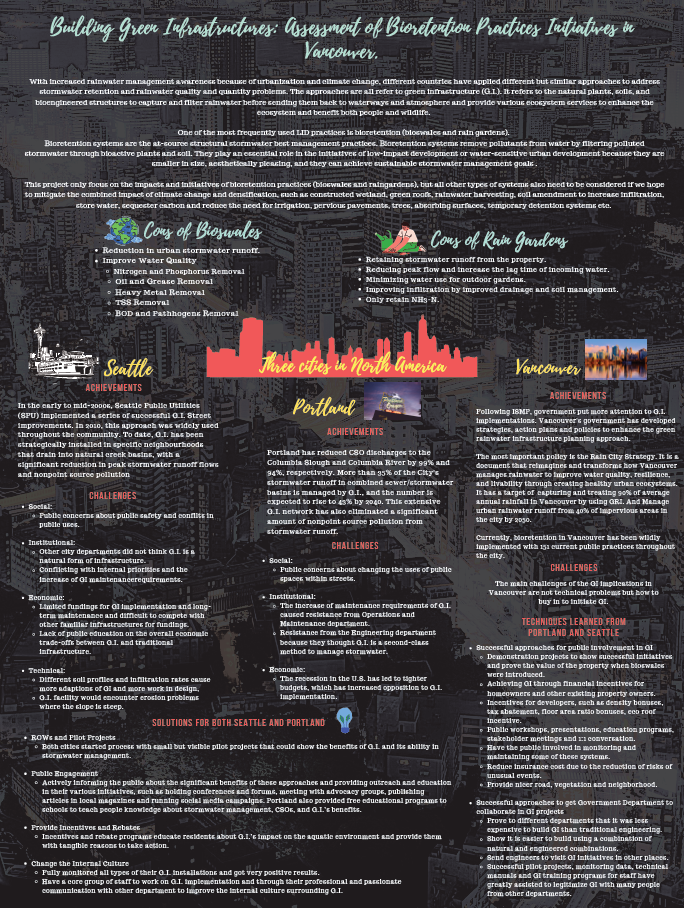Building Green Infrastructures: Assessment of Bioretention Practices Initiatives in Vancouver
Rachel Gao, MLWS 2021
In recent decades, the continued growth of urban development and climate change have led to multiple issues that affect the sustainability of urban drainage systems. The increase in impervious surface areas and extreme rainfall events in urban areas have altered watershed hydrology and groundwater hydrologic. Typical impacts include higher peak flows and runoff volumes, shorter lag times, and reduced infiltration and baseflow. Urban runoff also increases pollutants and nutrients, thereby degrading water bodies downstream in urban creeks. One of the most commonly used practices to mitigate these impacts is bioretention. Bioretention can capture and treat rainwater to return rainfall to a natural pathway and provide aesthetic and ecological values to treat rainfall as a resource.
Despite its widespread use globally, research on bioretention systems remains active, particularly in the areas of its design and performance. This paper reviews a recent study focusing on bioretention, including the development and design application of bioretention systems, the performance of bioswales and rain gardens in hydrologic impact and water quality.
This paper focuses on the analysis of bioretention practices implementation in the City of Vancouver and uses Portland and Seattle as successful examples. In the City of Vancouver, there are a few comprehensive policies and strategies related to G.I. implementations, but with less public support and people’s awareness. Both Portland and Seattle are at mature G.I. implementation stages that have also met similar challenges and have overcome them with strategic solutions, such as public engagement and providing Incentives and Rebates. Therefore, the City of Vancouver should learn from these two thriving cities.
